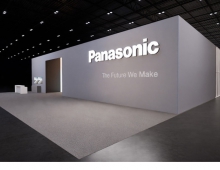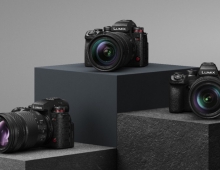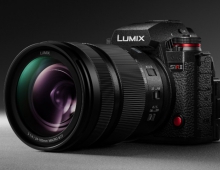
Commission Clears Proposed Acquisition of Sanyo by Panasonic
The European Commission has cleared under the EU Merger Regulation the proposed acquisition of Sanyo Electric Co., Ltd. by Panasonic Corporation.
Panasonic earlier this month offered to divest some businesses to gain EU regulatory approval.
Panasonic, the world's No. 1 plasma TV maker, said in December last year it would spend up to 400 billion yen to buy Sanyo to strengthen its position in the rechargeable battery and solar power equipment markets.
Panasonic, which vies with Sony for the title of the world's largest consumer electronics maker, won approval from Japan's antitrust regulators this month for the deal.
The EC 's decision is conditional upon the divestment of certain battery production facilities in markets where the Commission identified competition concerns. In view of the remedies proposed, the Commission has concluded that the operation would not significantly impede effective competition in the European Economic Area (EEA) or any substantial part of it.
Competition Commissioner Neelie Kroes said "In view of the remedies offered, I am satisfied that competition will remain vigorous after the merger and that purchasers of batteries will continue to benefit from choice and competitive prices."
Both Sanyo and Panasonic are diversified industrial groups. Panasonic is primarily active worldwide in the development, manufacture, and sale of a wide range of audiovisual and communication products, home appliances, electronic components and devices including batteries and industrial products. Sanyo is primarily active worldwide in the development, manufacture, and sale of consumer products, commercial equipment, electronic components including batteries and industrial logistics and maintenance equipment.
The Commission?s investigation identified competition concerns in a number of battery markets where the merged entity would have a significant market share. These are the markets for primary cylindrical lithium batteries, portable rechargeable nickel-metal hydride batteries and rechargeable coin-shape batteries based on lithium.
To remedy the concerns raised by the Commission relating to cylindrical lithium and rechargeable coin-shape batteries, the parties made the commitment to divest a production plant that currently produces both these types of battery. The proposed transaction, as modified by this commitment, would therefore not result in any increase in market share in cylindrical lithium and rechargeable coin-shape batteries.
Concerning portable rechargeable nickel-metal hydride batteries, the parties agreed to divest one of the parties' portable nickel-metal hydride businesses to eliminate any increase in market share in this product market.
After market testing the proposed commitments, the Commission concluded that they would remedy its serious doubts and therefore ensure that effective competition would not be impeded as a result of the proposed transaction.
The Commission also examined a number of consumer electronic product markets such as camcorders and flat panel televisions where both Panasonic and Sanyo are active. The Commission's investigation found that in many instances the increase in market share that would result from the proposed transaction was limited and that the merging parties were generally not viewed as each other's closest competitor. In addition, the merged entity would continue to face competitive pressure from a number of players in each of the markets at issue.
The Commission worked in close cooperation with the US Federal Trade Commission and the Japanese Fair Trade Commission on this case in the framework of bilateral cooperation agreements between the respective authorities.
Panasonic, the world's No. 1 plasma TV maker, said in December last year it would spend up to 400 billion yen to buy Sanyo to strengthen its position in the rechargeable battery and solar power equipment markets.
Panasonic, which vies with Sony for the title of the world's largest consumer electronics maker, won approval from Japan's antitrust regulators this month for the deal.
The EC 's decision is conditional upon the divestment of certain battery production facilities in markets where the Commission identified competition concerns. In view of the remedies proposed, the Commission has concluded that the operation would not significantly impede effective competition in the European Economic Area (EEA) or any substantial part of it.
Competition Commissioner Neelie Kroes said "In view of the remedies offered, I am satisfied that competition will remain vigorous after the merger and that purchasers of batteries will continue to benefit from choice and competitive prices."
Both Sanyo and Panasonic are diversified industrial groups. Panasonic is primarily active worldwide in the development, manufacture, and sale of a wide range of audiovisual and communication products, home appliances, electronic components and devices including batteries and industrial products. Sanyo is primarily active worldwide in the development, manufacture, and sale of consumer products, commercial equipment, electronic components including batteries and industrial logistics and maintenance equipment.
The Commission?s investigation identified competition concerns in a number of battery markets where the merged entity would have a significant market share. These are the markets for primary cylindrical lithium batteries, portable rechargeable nickel-metal hydride batteries and rechargeable coin-shape batteries based on lithium.
To remedy the concerns raised by the Commission relating to cylindrical lithium and rechargeable coin-shape batteries, the parties made the commitment to divest a production plant that currently produces both these types of battery. The proposed transaction, as modified by this commitment, would therefore not result in any increase in market share in cylindrical lithium and rechargeable coin-shape batteries.
Concerning portable rechargeable nickel-metal hydride batteries, the parties agreed to divest one of the parties' portable nickel-metal hydride businesses to eliminate any increase in market share in this product market.
After market testing the proposed commitments, the Commission concluded that they would remedy its serious doubts and therefore ensure that effective competition would not be impeded as a result of the proposed transaction.
The Commission also examined a number of consumer electronic product markets such as camcorders and flat panel televisions where both Panasonic and Sanyo are active. The Commission's investigation found that in many instances the increase in market share that would result from the proposed transaction was limited and that the merging parties were generally not viewed as each other's closest competitor. In addition, the merged entity would continue to face competitive pressure from a number of players in each of the markets at issue.
The Commission worked in close cooperation with the US Federal Trade Commission and the Japanese Fair Trade Commission on this case in the framework of bilateral cooperation agreements between the respective authorities.





















